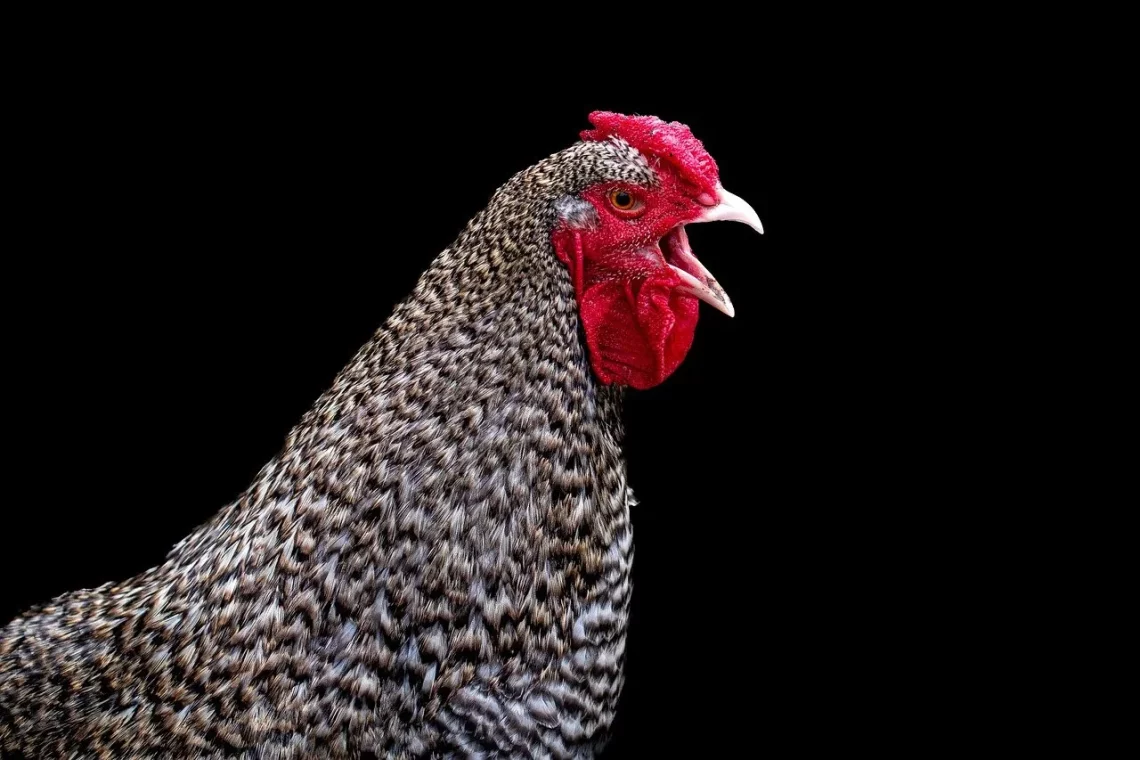
Can Chickens Get Rabies? Understanding Risks and Prevention
Chickens are one of the most popular domesticated animals around the world, cherished not only for their eggs and meat but also for their companionship. As such, understanding their health and the potential risks they face is essential for any chicken owner. Among the many health concerns that can affect these birds, rabies is often mentioned, leading to confusion and concern among poultry keepers. Rabies, a viral disease most commonly associated with mammals, particularly affects the nervous system and is typically transmitted through bites from infected animals.
While it’s crucial to be aware of various diseases that can impact chickens, the specific question of whether chickens can get rabies requires a closer examination. This article aims to clarify the connection between chickens and rabies, the risks associated with the disease, and preventative measures that can be taken to ensure the health and safety of your flock. As we delve into this topic, it is important to distinguish fact from fiction and provide chicken owners with reliable information to help them navigate the complexities of poultry health management.
Understanding Rabies: Virus and Transmission
Rabies is caused by the rabies virus, which belongs to the Lyssavirus genus. This virus primarily affects mammals, including humans, and is most commonly found in wildlife, such as bats, raccoons, and foxes. The transmission of rabies typically occurs through saliva, most often via bites from an infected animal. Once the virus enters the body, it travels along the nerves to the brain, where it causes inflammation and, ultimately, death if left untreated.
Although rabies predominantly affects mammals, there is limited evidence suggesting that non-mammalian species, like birds, might be able to carry the virus under specific circumstances. However, there is no substantial scientific data indicating that chickens or other domestic birds can become infected with rabies. Chickens lack the necessary biological pathways for the rabies virus to thrive, making them highly resistant to the illness.
While the risk of rabies in chickens is virtually nonexistent, it’s essential for poultry owners to remain vigilant about other diseases that can affect their flocks. Regular health checks, vaccination programs for common avian diseases, and maintaining a clean environment are effective strategies to ensure the overall well-being of your chickens. By understanding the nature of rabies and its transmission, poultry keepers can better focus their efforts on preventing diseases that are more likely to affect their birds, ensuring a healthy and productive flock.
Common Diseases in Chickens: Identifying Risks
While rabies poses little to no threat to chickens, there are numerous diseases that poultry owners should be aware of. Diseases such as avian influenza, Newcastle disease, and Marek’s disease can have severe consequences for both the health of the birds and the economic viability of poultry farming.
Avian influenza, often referred to as bird flu, is a highly contagious viral infection that can spread rapidly among domestic and wild birds. Symptoms may include respiratory distress, decreased egg production, and sudden death. Preventative measures include biosecurity protocols, such as limiting contact with wild birds and implementing strict hygiene practices.
Newcastle disease is another viral infection that affects chickens, leading to respiratory and neurological symptoms. Vaccination is available and is a critical component of managing this disease, especially in areas where outbreaks are common.
Marek’s disease is a viral infection caused by a herpesvirus that can lead to tumors and paralysis in infected birds. Vaccination is also a key strategy in preventing Marek’s disease, particularly in young chicks.
By understanding these common diseases and their symptoms, poultry owners can take proactive steps to protect their chickens. Regular health checks, vaccination programs, and maintaining a clean and safe environment will go a long way in ensuring the well-being of the flock.
Preventative Measures for Chicken Health
Maintaining the health of your chickens requires a dedicated approach that combines good husbandry practices with proactive health management. Here are several strategies that can help prevent diseases and promote overall flock health.
First and foremost, biosecurity is essential. This involves limiting access to your chicken coop and ensuring that only healthy birds are introduced into the flock. When new birds are added, they should be quarantined for a period to monitor for any signs of illness before being integrated with the existing flock.
Hygiene is another critical aspect of chicken health. Regular cleaning of the coop, feeding areas, and water sources can significantly reduce the risk of disease transmission. Ensure that feeders and water containers are sanitized routinely and that bedding is changed regularly to minimize the buildup of harmful bacteria and parasites.
Nutrition also plays a vital role in maintaining the health of your chickens. Providing a balanced diet that meets their nutritional needs will help strengthen their immune systems, making them less susceptible to infections. High-quality feed, clean water, and occasional supplements can contribute to overall health.
Lastly, vaccination is a cornerstone of disease prevention in poultry. Regular vaccinations against common avian diseases can protect your flock from outbreaks and ensure a healthy and productive environment. Consult with a veterinarian to develop a vaccination schedule tailored to your flock’s needs.
By implementing these preventative measures, chicken owners can significantly improve the overall health and longevity of their birds, reducing the risk of disease and enhancing their productivity.
Myths and Misconceptions About Rabies in Poultry
Despite the lack of evidence supporting the notion that chickens can contract rabies, various myths and misconceptions persist in popular culture. One common myth is that any animal can be a carrier of rabies, which leads some to believe that even non-mammalian species like birds could be susceptible. This misunderstanding often stems from the aggressive and fearful behavior exhibited by animals infected with rabies, which can be misinterpreted or exaggerated in casual conversation.
Another misconception is that rabies can be transmitted indirectly through environmental exposure, such as coming into contact with surfaces contaminated by infected animals. However, rabies is primarily transmitted through direct bites and saliva, making indirect transmission highly unlikely, especially for chickens.
It’s essential for poultry owners to distinguish between fact and fiction to ensure they are not unnecessarily alarmed by misinformation. Education and awareness are key in dispelling these myths. Engaging with veterinarians, poultry experts, and credible resources can provide accurate information about the health risks facing chickens and the best practices for flock management.
By addressing these misconceptions, chicken owners can focus their attention on real health concerns and implement effective strategies to protect their birds from diseases that genuinely pose a risk.
In conclusion, while the idea of rabies in chickens may seem concerning, it is important to understand that these birds do not contract the virus. Instead, poultry owners should prioritize the prevention of more relevant diseases that can affect their flocks. Maintaining good biosecurity practices, proper hygiene, balanced nutrition, and routine vaccinations will go a long way in ensuring the health and productivity of your chickens.
**Disclaimer:** This article is for informational purposes only and should not be considered medical advice. For any health concerns regarding your chickens, please consult a veterinarian.




